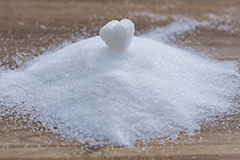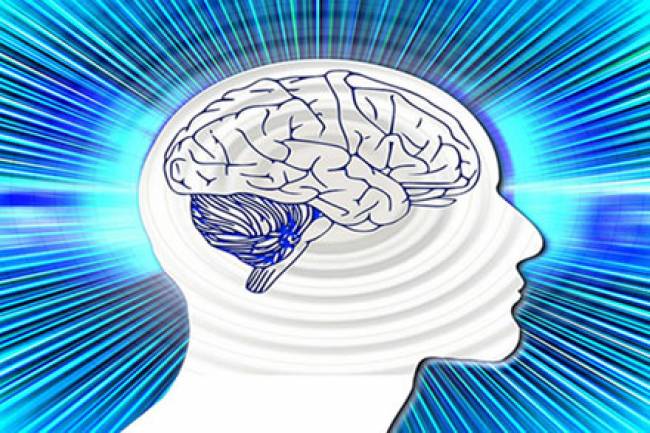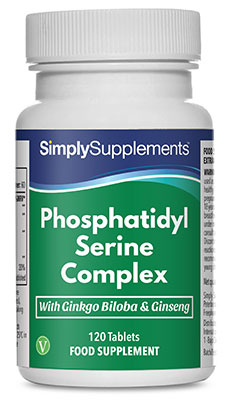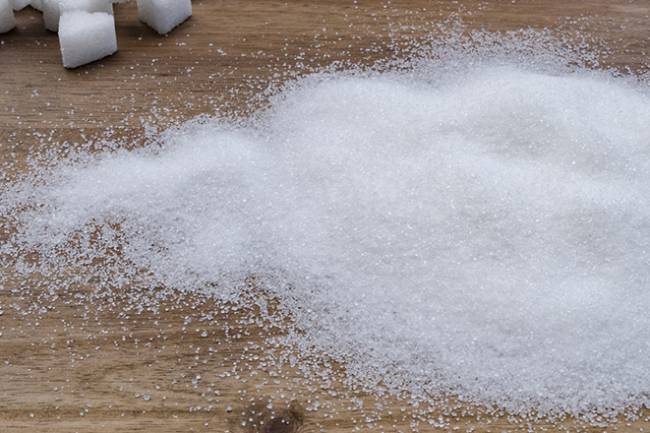How to Preserve Your Memory With Age

The brain is a complex organ which can be severely affected as we age. Many of us who would consider ourselves more “mature” have had the experience of forgetting someone's name, or walking into a room only to realise we have no idea why. But why does memory start to fail, and what can we do to preserve our memory for as long as possible?
Minimise Stress
Time and again we have been told by health professionals that stress can lead to a range of negative health consequences. While short-term stress, and the burst of adrenaline that typically accompanies it, can actually be positive for our health, longer-term sources of stress are less likely to be beneficial. One surprising discovery is that chronic stress has the potential to negatively impact the memory.
Scientists have discovered that cortisol - the hormone produced by your adrenal gland in response to stressful situations - can have a significant impact on your ability to store or recall memories. For example, studies have demonstrated that witnesses to crime scenes tend to score quite badly when asked to identify either the perpetrator or victim. Furthermore, witnesses have been shown to more effectively identify a potential criminal when looking at photographs rather than when faced with a more stressful in-person line-up. Elsewhere scientists have measured cortisol levels in the body while following volunteers over an extended period of time.
During the five year study they found that individuals with higher cortisol levels were more likely to experience damage to the hippocampus - the part of the brain responsible for memory - and they subsequently experienced more severe memory declines. The message here is that ongoing high levels of stress are associated with more rapid declines in cognitive function, and that finding healthy ways to manage or reduce stress is therefore likely to benefit your memory.
Exercise
 Exercise has been consistently shown to offer a plethora of powerful benefits to our health, from protecting our cardiovascular system to making everyday activities easier. However, the body and the mind are intricately linked, and growing evidence suggests that regular exercise can actually benefit your memory as much as your muscles. As discussed, the part of the brain responsible for memory is known as the “hippocampus”. Like other parts of the body, the cells that make up the hippocampus are constantly turning over - old cells die while fresh cells replace them.
Exercise has been consistently shown to offer a plethora of powerful benefits to our health, from protecting our cardiovascular system to making everyday activities easier. However, the body and the mind are intricately linked, and growing evidence suggests that regular exercise can actually benefit your memory as much as your muscles. As discussed, the part of the brain responsible for memory is known as the “hippocampus”. Like other parts of the body, the cells that make up the hippocampus are constantly turning over - old cells die while fresh cells replace them.
Studies have shown that as we age, the body's ability to regenerate new brain cells declines, while the rate of cell death continues unabated. The end result of this is that the hippocampus actually gets smaller as we age. This, in turn, can lead to the natural ageing of the mind and many of the memory problems we associate with getting older. Exercise, however, may represent a powerful weapon against this process.
In one study, scientists enrolled 120 older adults into an aerobic exercise program while monitoring for any changes to their memory. The experts reported that this regular physical exercise resulted in a 2% increase in hippocampus volume, which is roughly equivalent to the natural rate of decline expected over a period of 1-2 years. As the scientists pointed out, physical exercise had succeeded in “effectively reversing age-related loss in volume”.
A study involving the impact of exercise level on 9,008 randomly-chosen individuals in Canada found that “compared with no exercise, physical activity was associated with lower risks of cognitive impairments, Alzheimer's disease, and dementia of any type”, and furthermore that “significant trends for increased protection with greater physical activity were observed”. Even modest levels of exercise have been linked to improvements in cognitive function.
One study involving younger people asked them to complete a memory test. They then engaged in a brisk 10 minute walk, followed by a 30 minute recovery period and another memory test. This simple activity resulted in “significant improvement in memory recall”. It has been suggested that by reducing stress hormones in the body, and pumping heavily oxygenated blood to the brain, exercise has the potential to support a healthy memory in all age-groups, though this benefit seems particularly noticeable in more mature individuals. The message seems pretty clear - if you want to maintain your memory for as long as possible then staying (or becoming) active is likely to be highly beneficial.
Eat Right
Free radicals, which exist in the environment around us and are produced as a byproduct of normal metabolism, have long been associated with natural ageing. At the same time, antioxidants have gained in awareness as nature's way to protect against the damage that free radicals can do. Just as free radicals are implicated in everything from skin cancer to heart disease, they may also contribute to declining memory with age.
Whilst there are many nutrients known to have antioxidant properties, possibly the best-known of all is vitamin E. Research in the USA took regular blood samples from almost 5,000 volunteers while simultaneously engaging them in memory studies. The results showed that poor vitamin E levels in the blood were consistently associated with failing memory, irrespective of other differences between the participants.
Great natural sources of vitamin E include almonds, spinach, sweet potato, avocado, sunflower seeds and butternut squash, so try to include a range of natural plant-based foods in your diet for maximum impact. Plant-based foods are also believed to be beneficial because of the various other antioxidants they contain. In other words, if you want to keep your mind healthy, then ensure you're providing it with the right fuel, comprising of a rich assortment of fruits and vegetables, each offering high levels of antioxidant protection.
Keep Your Heart Healthy
Most of us have heard of Alzheimer's disease; the most common form of senility or dementia. Dementia is of course characterised by cognitive impairment leading to declining memory, especially with regards to long-term memory access. What you might not know quite so much about is the second most common type of dementia, which is known as “vascular dementia”. As the name suggests, this form of senility is closely associated with changes to the circulatory system, including the heart and blood vessels.
Studies have found clear relationships between heart health and dementia. For example studies have claimed that roughly 30% of all stroke patients will experience a degree of cognitive decline. Another study involving 10,963 volunteers that were followed for a period of six years found that high blood pressure (hypertension) was “positively associated with cognitive decline”.
While the risk of heart disease is real, and therefore should be reason-enough to engage in a heart-healthy diet, another side-benefit is that it may also help to reduce your risk of dementia and cognitive decline. Fortunately, with a few simple changes anyone can help to support a healthy heart. Reducing salt intake, limiting alcohol and bulking up on high-fibre foods like fruits and vegetables can all help. For a detailed guide to eating for heart health, please click here.
Control Your Sugar Intake
 Sugar is often recommended as a quick and powerful source of energy, used in sports drinks to help boost performance. There is subsequently a temptation to assume that a sudden boost of glucose may aid mental performance, but the evidence here is rather less clear. What we do know from past studies is that repeated, sudden influxes of refined sugars cause our blood sugar levels to spike. In turn, our body reacts by releasing large volumes of insulin, encouraging our cells to absorb the glucose necessary for everyday function.
Sugar is often recommended as a quick and powerful source of energy, used in sports drinks to help boost performance. There is subsequently a temptation to assume that a sudden boost of glucose may aid mental performance, but the evidence here is rather less clear. What we do know from past studies is that repeated, sudden influxes of refined sugars cause our blood sugar levels to spike. In turn, our body reacts by releasing large volumes of insulin, encouraging our cells to absorb the glucose necessary for everyday function.
Sadly, when these sudden spikes occur too regularly the body can start to develop insulin resistance, with the very real potential of developing type 2 diabetes. Type 2 diabetes has grown to epidemic proportions in the last few decades, thanks in many ways to our more sedentary lifestyles and the ease of accessing processed foods that are rich in refined sugars. Sadly, diabetes is more than an inconvenience; it can have significant knock-on health effects including nerve damage, kidney disease and complications with vision.
Of relevance to this article, diabetes is also considered to be a risk factor for memory complications. A meta-analysis is considered to be the “gold standard” of scientific investigation, whereby the results of numerous previous studies are pooled and further analysed. Just such a study occurred looking at the link between diabetes and dementia. The results, incorporating data from over 40,000 individuals, showed that “diabetes was a risk factor for dementia”.
There are numerous lifestyle changes that have been shown to reduce the risk of developing diabetes, including bulking up on fibre, avoiding overly-processed forms of sugar and getting regular exercise. To learn more about how diet can impact diabetes please click here.
Keep Your Brain Active
When it comes to physical fitness we are often advised to “use it or lose it”. Osteoarthritis patients, for example, tend to see positive benefits from exercising sore or swollen joints when compared against inactivity. Scientists have also found evidence that the same is likely to be the case when it comes to cognition and memory; the more active our minds are kept the slower the age-related decline.
One astonishing piece of research, named the Health and Retirement Study, followed 16.638 retirees. Participants were asked to complete extensive surveys about their lifestyle, and also took part in tests that required them to recall words they had previously been asked to remember. A clear relationship was observed. Those individuals considered “socially integrated” experienced lower levels of memory loss with age than their peers. Indeed, it was reported that people who had the most social interaction - such as with partners, neighbours or children - experienced a decline in memory just half that of the least sociable cohort.
It seems that interacting with others - which in essence exercises the brain regularly - helps to slow the rate of age-related memory decline. Studies have further shown that individuals with a high level of education, who read copiously, or who spent their career doing a job that required high levels of mental stimulation are statistically far less likely to suffer from dementia with age. The effect of “exercising” the brain seems to be particularly beneficial when combined with exercise.
For example, a group of individuals aged between 60 and 75 showed greater improvements in cognitive function when they combined both the introduction of aerobic exercise and tasks that involved “executive control” such as planning and scheduling. So don't sit mindlessly in front of the TV each night if you want to keep your mind healthy. The evidence suggests that learning something new, doing a crossword puzzle or spending time with family and friends is likely to be far more beneficial. Remember: use it or lose it.
Avoid Head Trauma
This may be the most obvious tip of all - that trauma to the head can impact cognition. One of the most notable studies in this department assessed the memory capability of sports people, comparing symptoms of memory impairment with their activity of choice. It was found that over 30% of amateur football players - who regularly head the ball - suffered from measurable memory problems. In contrast, exercises in which head trauma was far less likely - such as jogging and swimming - the figure sat at just 10%.
If you want to maintain your memory for the long term, therefore, do what you can to protect your head from unnecessary knocks. Now would probably be a good time to start wearing a helmet when cycling, and to give up those dreams of a professional boxing career.
Consider Supplementation
There is a surprising volume of evidence to suggest that supplements may help to retain memory. Unlike some conditions, where just a single supplement seems to have an effect, there is a smorgasbord of options available for the memory, many working in entirely different manners. Let's look at some of the most intriguing supplement options to have been investigated in scientific studies…
Phosphatidylserine
Phosphatidylserine is a mouthful - there's no denying that - which is why many people simply shorten this supplement to the acronym “PS”. PS is a naturally-occurring compound which is found in many cells of the body, but most notably in the neurons of the brain. We naturally consume it in our diets, but studies have found that supplementing with additional phosphatidylserine may be beneficial for the memory.
The results of taking PS can be startling. A small study found that just six weeks of PS supplementation resulted in a 42% increase in the ability to recall words participants had been asked to memorize. Other studies have revealed similarly positive results. For example, a study in which a group of individuals aged between 50 and 90 years of age took PS for a period of twelve weeks reported statistically significant improvements in “memory recognition, executive function and mental flexibility”.
You can learn more about PS in our detailed guide which you will find here.
Ginkgo
Ginkgo is possibly one of the best-known supplements taken by those looking for improved mental acuity. But what does the evidence tell us?
While difficulties do exist with natural products, where the concentration of active ingredients may differ from one sample to another, generally the consumption of ginkgo seems to be positively associated with memory and more general cognition. For example, one study found that after just 12 weeks of taking 200 mg per day positive improvements with cognition were seen.
This effect seems to apply both to younger individuals, and those who may already be suffering from existing memory troubles. Research has demonstrated that ginkgo seems to result in a modest, yet noticeable, improvement in those suffering from dementia, roughly equivalent to a 3% improvement simply by taking a supplement.
Learn more about the benefits of ginkgo biloba here.
Ginseng
Ginseng is often sold in combination with ginkgo, as both are believed by many people to positively impact cognition in slightly different manners. One study provided just such a combination to 256 middle-aged volunteers complaining of memory problems for a 14 week period. The results demonstrated an impressive 7.5% improvement in memory on average, with notable improvements on both long-term and working memory.
As well as memory, there is evidence to suggest that ginseng may also help to improve moods and attention, with doses of between 200mg and 600mg showing improvements in both metrics.
Fish Oil
 Fish oils are rich in omega 3 fats, which are believed to help reduce inflammation in the body. In doing so, they may help with issues such as rheumatic joint pain or atherosclerosis. Additionally, however, there is evidence that fish oils may also positively impact the memory.
Fish oils are rich in omega 3 fats, which are believed to help reduce inflammation in the body. In doing so, they may help with issues such as rheumatic joint pain or atherosclerosis. Additionally, however, there is evidence that fish oils may also positively impact the memory.
A group of elderly patients were given either omega 3 oil or a placebo each day during a year-long trial. The experts reported that “the fish oil group showed significant improvement in short-term and working memory, verbal memory and delayed recall memory”. In summary, it was claimed that “the 12-month change in memory was significantly better in the fish oil group”.
Even more interesting results come from a study that followed 1,613 individuals for a period of five years, during which time they were asked to complete food questionnaires and undergo regular cognitive function tests. While natural declines were seen, it was noted that those individuals consuming the most omega 3 oils saw much better results. The scientists concluded that “omega 3 polyunsaturated fatty acids were inversely related to the risk of impaired overall cognitive function”.
Whether you enjoy eating oily fish, or would rather take cod liver oil supplements, it would seem that bulking up on your omega 3 is likely to be helpful.
Learn more about the health benefits of omega 3 oils here.
Conclusion
While none of us can hold back time forever, there is a wealth of evidence to suggest that taking proper care of yourself may help to protect against unnecessary memory loss. By eating lots of omega 3-rich fish and antioxidant-abundant fruits and vegetables, by staying active both physically and mentally and avoiding unnecessary stress you'll be in the best possible position to protect your memory with age.

Sources:
https://www.ncbi.nlm.nih.gov/pmc/articles/PMC1123445/
http://psycnet.apa.org/doiLanding?doi=10.1007%2Fs10979%E2%80%93004%E2%80%930565-x
https://www.nature.com/articles/nn0598_69
http://www.pnas.org/content/early/2011/01/25/1015950108.short
https://www.sciencedirect.com/science/article/pii/S0531556510000768
https://journals.humankinetics.com/doi/abs/10.1123/jsep.27.1.117
https://jamanetwork.com/journals/jamaneurology/article-abstract/594392?redirect=true
http://stroke.ahajournals.org/content/36/12/2670.short
http://onlinelibrary.wiley.com/doi/10.1111/j.1445-5994.2012.02758.x/full
http://n.neurology.org/content/56/1/42.short
https://jamanetwork.com/journals/jamaneurology/fullarticle/778849
https://academic.oup.com/aje/article/150/1/37/64304
http://ajph.aphapublications.org/doi/abs/10.2105/AJPH.2007.113654
https://jamanetwork.com/journals/jamaneurology/fullarticle/774397
https://link.springer.com/article/10.1007/s002130000533
https://www.tandfonline.com/doi/abs/10.1080/1028415X.2001.11747370
https://link.springer.com/article/10.1007/s00213-012-2848-0
https://www.ncbi.nlm.nih.gov/pmc/articles/PMC2981104/

 Nicole
Nicole 

























